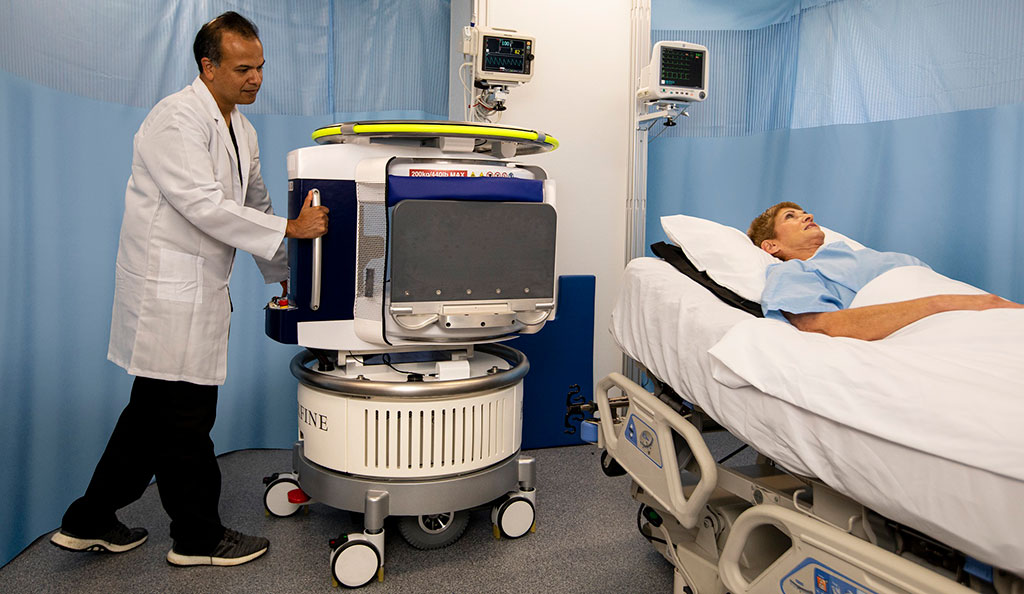Portable MRI System Enables Bedside Brain Scans
By MedImaging International staff writers
Posted on 27 Feb 2020
A highly portable magnetic resonance imaging (MRI) system wheels directly to the patient's bedside and is controlled via a wireless tablet. Posted on 27 Feb 2020
The Hyperfine Research (Guilford, CT, USA) Lucy Point-Of-Care MRI system is a low-field system that is 20X lower in cost, 35X lower in power consumption, and 10X lower in weight than current fixed conventional MRI systems. It also features ordinary permanent magnets that require no power or cooling, producing an image using low-power radio waves and magnetic fields. As a result, the system is highly portable and plugs directly into a standard electrical wall outlet, consuming a fraction of the power of traditional MRI.

Image: The Lucy point-of-care MRI system (Photo courtesy of Hyperfine)
Neither does the system require trained technicians, shielded electronics, or separate hospital facilities. The system is controlled from a standard tablet device, such as an iPad. Users choose the appropriate sequences and protocols from a simple playlist. Once the MRI scan has been completed, the images can be view directly on a tablet or smartphone, and can also be uploaded to the cloud for sharing and consultation with colleagues. Hyperfine is also working to develop proprietary artificial intelligence (AI) and deep learning (DL) software to reconstruct images and assist in diagnosis.
“More than 40 years after its first use, MRI remains a marvel; unfortunately, it also remains inaccessible. It's time that MRI made the jump to point of need, just like X-ray and ultrasound have before it. Going beyond that, nearly 90% of the world has no access to MRI at all,” said Khan Siddiqui, MD, chief medical officer of Hyperfine Research. “The Hyperfine system was designed to address the limitations of current MRI systems in order to make MRI accessible anytime, anywhere, to any patient.”
MRI scanners can have ultraweak, weak, medium, strong, and superstrong magnetic fields, as measured in Tesla units. Highest-quality scans are usually taken with the aid of superconducting magnetic systems that generate very strong magnetic fields, providing the highest image resolution. But such high-field systems require liquid helium to keep the superconducting magnets cool, which demands high-power consumption, separate facilities, and improved shielding.
Related Links:
Hyperfine Research








 Guided Devices.jpg)





